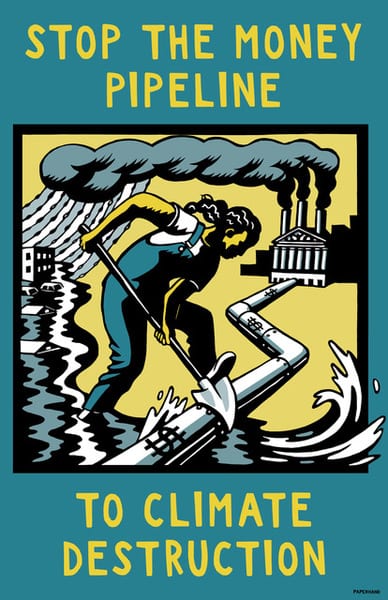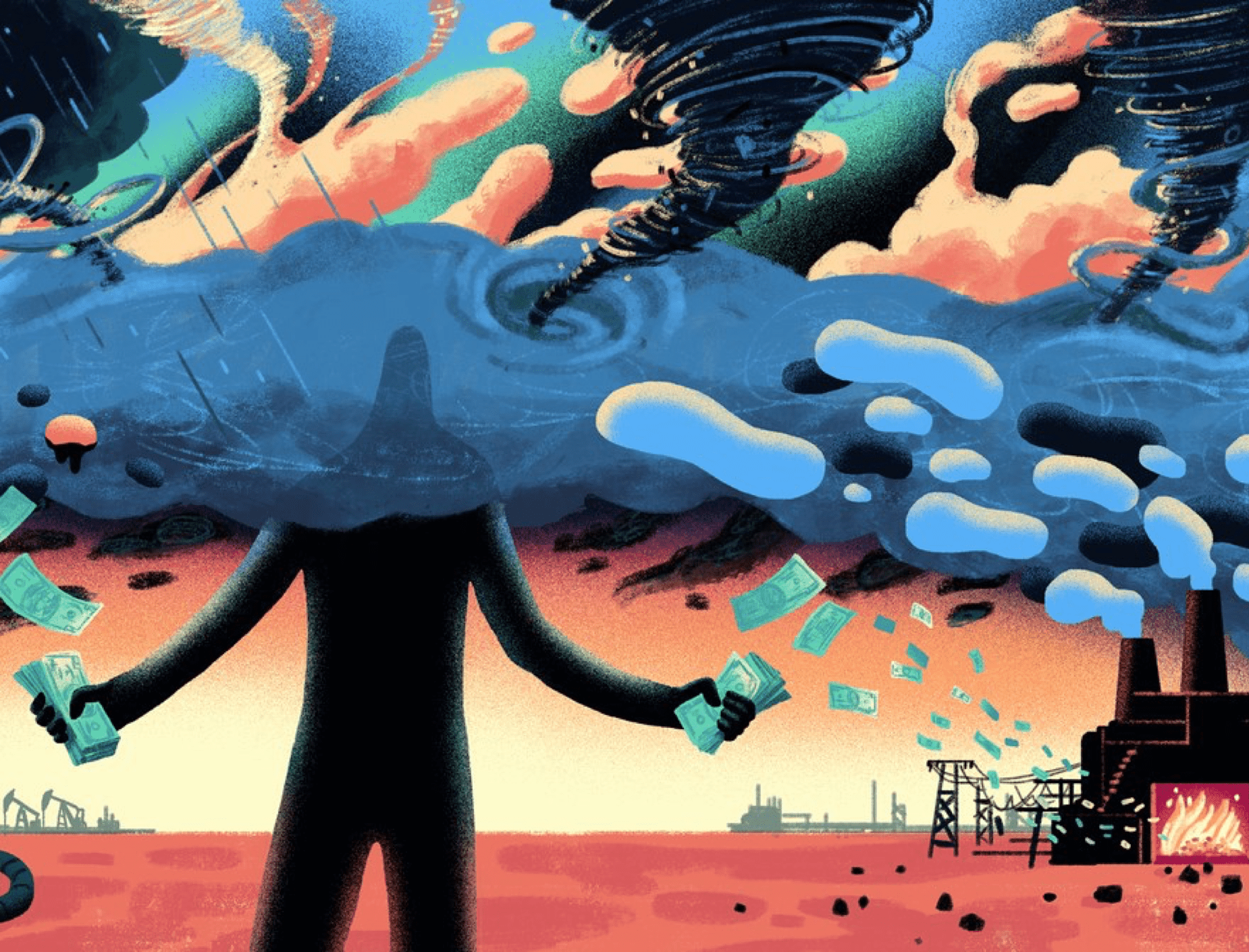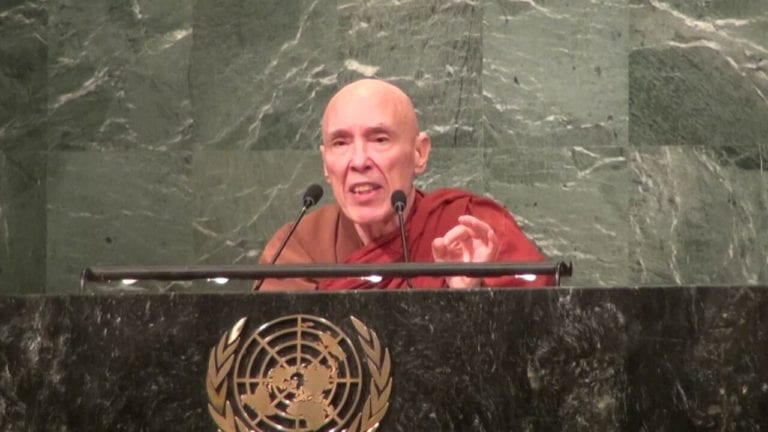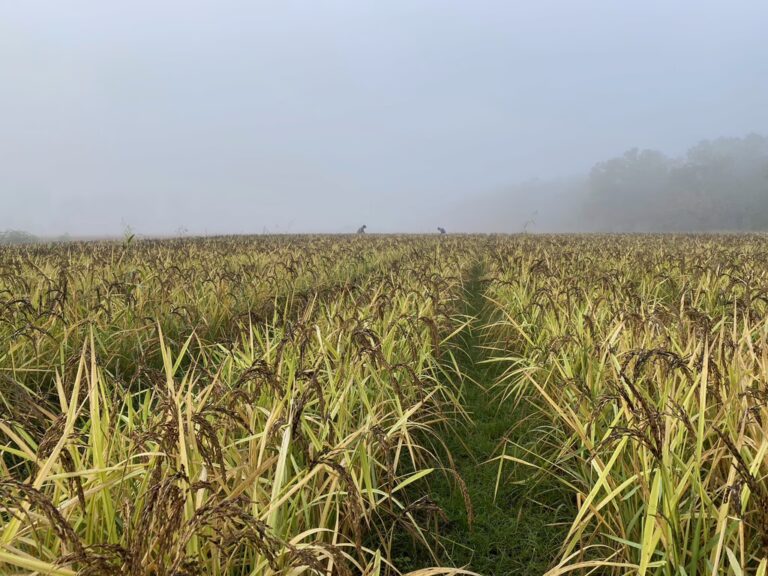From the beginning our goal has been simple:
Force the financial sector to stop doing business
with the companies causing the climate crisis and abusing human rights.Stop the Money Pipeline website
What is Stop the Money Pipeline?
From the organizers:
Stop the Money Pipeline is a coalition of 150 organizations & tens of thousands of everyday people who are working to hold the financial sector accountable for their role in the climate crisis.
Since the Paris Agreement was adopted in late 2015, Wall Street banks have provided $987 billion in financing to the fossil fuel industry. Big asset managers are the world’s largest investors in the fossil fuel industry. Insurance companies provide essential insurance to new fossil fuel projects without which they could not be built. Pension funds and university endowments invest billions of dollars in companies that are wrecking our climate and violating human rights around the globe. Stop the Money Pipeline exists to change this.
To hold Wall Street accountable, it’s going to take all of us. Stop the Money Pipeline includes individual campaigns targeting the worst offenders in each sector of our financial system. We demand that banks, asset managers, insurance companies and institutional investors stop funding, insuring and investing in climate destruction.
Through an EcoDharma Lens
Turning towards structural harm,
Perceiving not the banker but the greed,
Centering not the activist but the impacted,
Choosing not the practitioner’s comfort but the well-being of all,
In community with others like and unlike ourselves, practicing Right Action.
United around a set of equity principles, their initiatives confront the financial sector practices that generate enormous material wealth for a few at enormous cost to the living Earth community. In complex systems where the “harm” is pervasive yet difficult to trace to its sources, we value their discernment of financial institutions’ significant role in ecological violence. We invite you to explore their initiatives and discover how you might contribute in a way that expresses your Path of Engaged Practice. Here’s what we appreciate about STMP so far:
- Countering Rāga, Greed
Fossil fuel corporations critically depend on the investments, loans, and government subsidies facilitated by financial institutions with little accountability for themselves and devastating consequences for sensitive ecosystems and already marginalized communities. STMP’s initiatives are designed to reveal and counter codified greed in the these financial institutions. - Realizing Anattā : No Activist Heroes
Rather then celebrating themselves, STMP aspires to center the voices of marginalized communities, albeit only human communities, who are most impacted by ecological violence and themselves are often explicit about ecological interdependence. - Diverse, Distributed, and Learning
We’re all learning what it means to divest our own minds and our organizations of colonialism, patriarchy, and white supremacy. We’re impressed with the skillful ways that STMP is mutually empowering and diversely led. We appreciate their enthusiasm for collaboration and the way they systematically create opportunities for actions at multiple scales and geographies.
If you and members of your EcoSangha are already involved with STMP or decide to go there, we’d love to hear about your experience. Share your comments below or send us an email at .
Current Calls to Action

Stop the Money Pipeline is an ongoing campaign that supports local calls to action while highlighting national and international ones. Your best source is the Stop the Money Pipeline Twitter & facebook feeds for current campaigns, webinars, relevant news, and campaign goals. That said, here we’ll try to keep our list reasonably up to date:
- Join the campaign to #DefundLine3, launched by Indigenous frontline leaders and the Stop the Money Pipeline coalition on Feb 8th, 2021.
- Make the case to put people and planet before polluters to your government representatives and local financial institutions.
- Move your money from banks that fund climate chaos (aimed at US institutions, but these principles can be applied in other areas as well)
- College students: Learn about and launch a reinvestment campaign
- Educate yourself and others about the financial industry’s role in fueling the climate crisis







